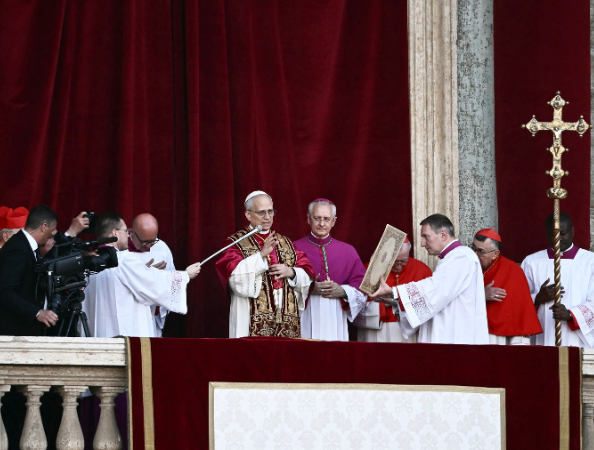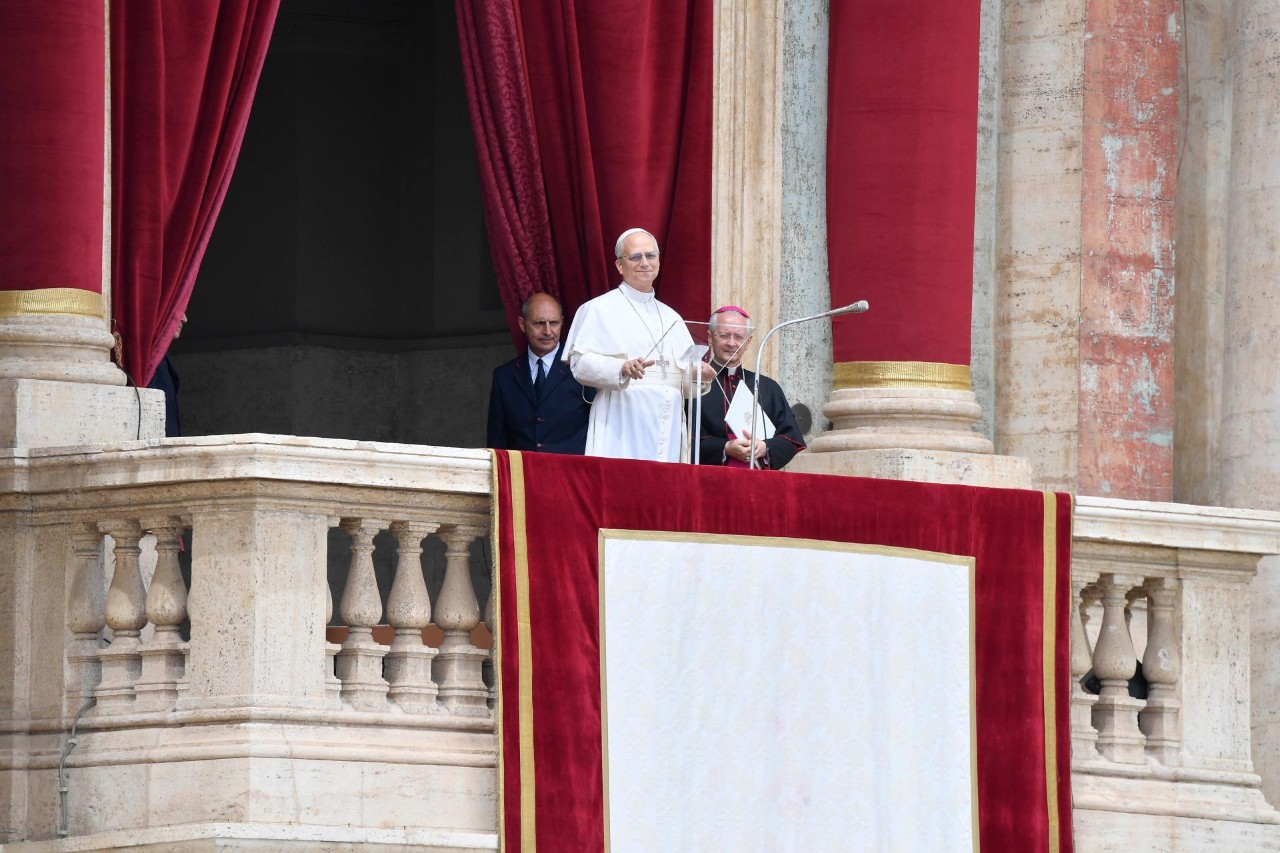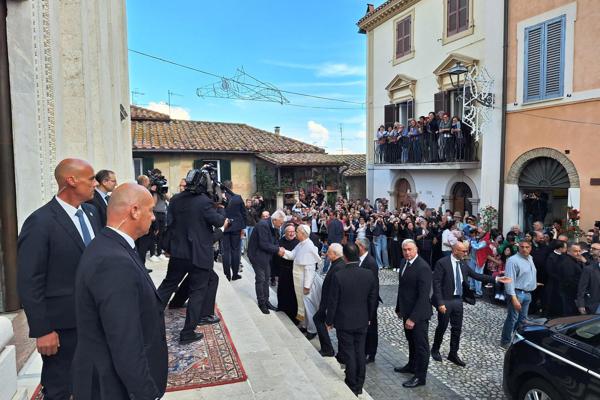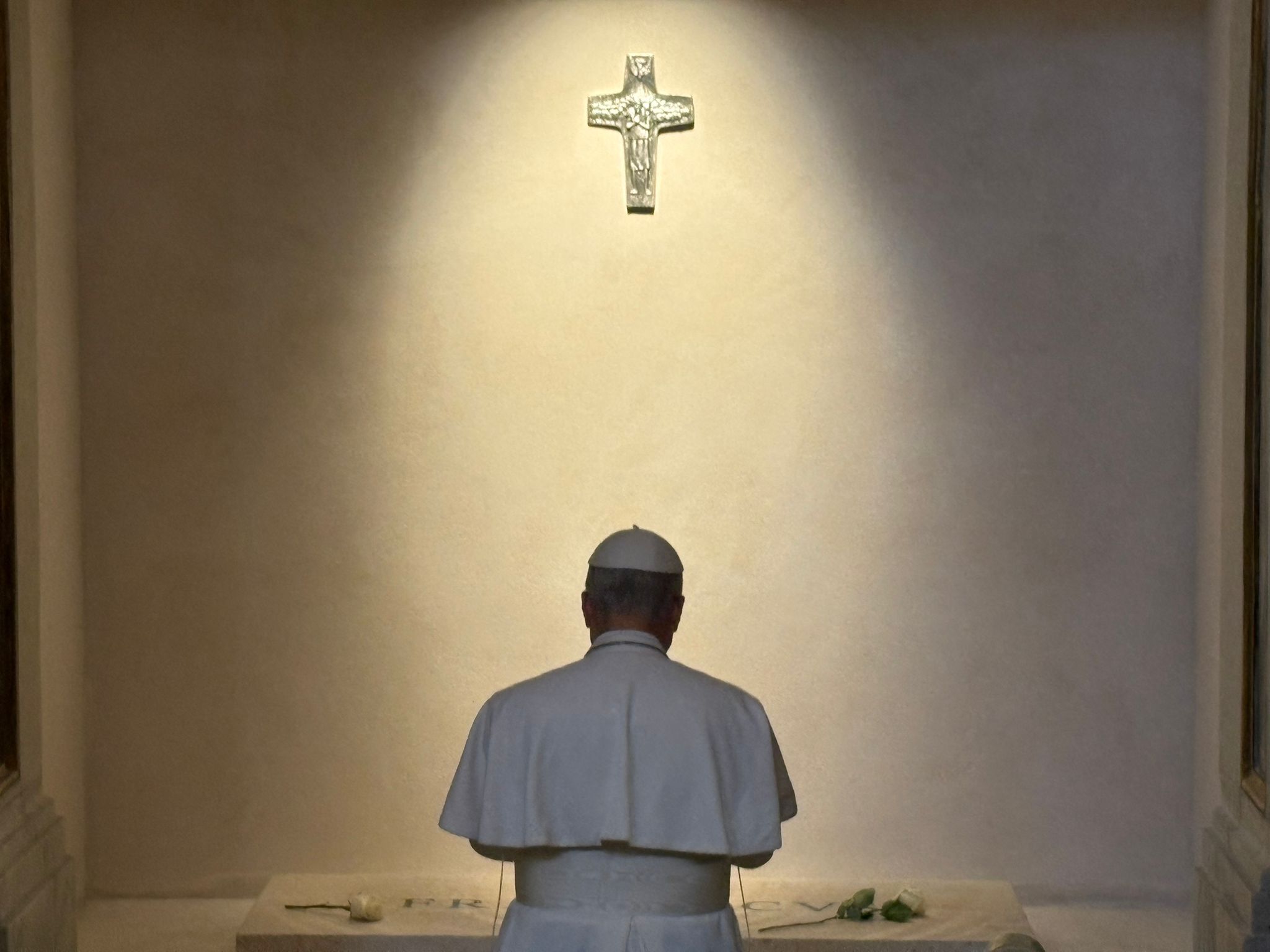Who is Leo XIV? Experts in Rome discuss the new Pope and his leadership | Analysis by Vatican expert Óscar Elizalde

On May 8, when the white smoke appeared over the chimney of the Sistine Chapel at 6:07 p.m. in Rome, few of us expected that the 133 cardinals would elect the 267th successor to Peter in the fourth ballot of the conclave that had begun the day before.
In just a few minutes, as the bells of St. Peter's Basilica rang out that Rome had a new bishop, streams of people thronged St. Peter's Square, and the Via della Conciliazione was flooded with marathon runners vying for a spot near the Basilica's central balcony, where at 7:22 p.m. the French protodeacon Cardinal Dominique Mamberti began the rite to present the new pontiff: annuntio vobis gaudium magnum: habemus Papam ('I announce to you great joy: we have a Pope').

Robert Francis Prevost is the new pope. Photo: AFP
It was Cardinal Robert Francis Prevost, who was part of the list of American electors – a dozen of them! – the second most represented in the conclave, after the Italian group (17), and who would henceforth assume the name of Leo XIV. It should be noted, however, that, due to his missionary background, Prevost is “more Peruvian than North American,” as Cardinal Odilo Pedro Scherer has said.
For Francis' election 12 years ago, five ballots were required for at least two-thirds of the cardinal electors (77) to agree. This time, at least 89 cardinals were required to write the same name on the ballot paper, which is introduced with the Latin phrase Eligo in Summum Pontificem ('I elect as Supreme Pontiff').
We also had reason to suspect that the election would not take place before the fifth ballot and might even take longer: the electors in this conclave came from 70 countries, many of whom were not well-known to each other, given their status as shepherds of the "peripheries" of Catholicism. For the election of Francis and Benedict XVI, the electors came from 49 and 52 countries, respectively, always with a European predominance.
End of the polls. Prevost's election confirms Francis's words during the opening of the 2023 synodal assembly: "It is no use to us to have an immanent vision, made up of human strategies, political calculations, or ideological battles (...). The protagonist is the Holy Spirit. We are not here as if in a parliament, but to walk together, with the gaze of Jesus."
History repeats itself: "Those who enter as papal candidates, leave as cardinals." The same thing happened with Pietro Parolin as with Angelo Scola in the 2013 conclave, while with Robert Prevost, a similar phenomenon occurred to that of Jorge Mario Bergoglio. The former made headlines in every media outlet, while the latter always kept a low profile. The truth is that although the last two conclaves have had local favoritism (Parolin and Scola), the Barca of Peter continues to be led by non-Italians, as it has been for 47 years.

"Do not be afraid, accept the invitation of Christ the Lord!" Photo: Vatican News X:@vaticannews_es
What will Leo XIV's pontificate be like? Where will the Church be heading? It is neither possible nor responsible to make predictions—which, in any case, will always be "reserved"—just three days after his election. However, in Robert Prevost's itineraries of pastoral and spiritual leadership, we glimpse a pontificate marked by dialogue and unity both within and outside the Church, in continuity with the great social and ecclesial concerns of Francis, whom, incidentally, he has repeatedly evoked in his first public appearances.
Continuity with its own imprint “Leo XIV will continue Francis’ project of a missionary Church committed to the peripheries, but with his own stamp,” Brazilian Cardinal Leonardo Steiner, Archbishop of Manaus and the only elector from the Amazon region in the conclave, told EL TIEMPO, emphasizing that “he will be a great bridge-builder!” This is what “supreme pontiff” means. “There is a train moving, and Leo XIV is getting on board to contribute to this journey with his own personal touch,” noted Spanish Cardinal Juan José Omella.
His close closeness and communion with the programmatic choices of Bergoglio—with whom he met weekly for a period of two hours—is reflected in his address to the College of Cardinals on the morning of May 10, when he expressed his fervent desire to uphold his predecessor's commitments to the proclamation of the Gospel; collegiality and synodality in order to "walk together" at the Church level; attention to the sensus fidei, that is, to the voices and initiatives of all the baptized, as occurs in manifestations of popular piety; and, in a special way, "the loving care of the weak and discarded," as well as "courageous and trusting dialogue with the contemporary world in its different components and realities."
"Hot soup is starting to be eaten around the edges," comments Argentine theologian Emilce Cuda, with a Buenos Aires accent, when interviewed by this newspaper. She has served as secretary of the Pontifical Commission for Latin America, chaired by Prevost since 2023.
"Francis repositioned the Church on the peripheries; Leo XIV will reposition it at the center of global power to make social dialogue a reality as the only guarantee of true peace," he asserts.

Pope Leo XIV (C) being greeted during a visit to the Shrine of Our Lady of Good Counsel. Photo: EFE
The experience he gained over more than a decade as Prior General of the Order of Saint Augustine, addressing global problems without losing his sensitivity to local realities, gives him a particular wisdom and insight to confront the tragedies that overwhelm ordinary believers, as well as contemporary societies, marked by conflict, injustice, and inequality.
“He is a simple, approachable, kind, and prudent person, with a gift for listening; he is calm, sedate, and conveys peace, although he also knows how to command attention when necessary, and he expresses it with clarity and charity,” says Peruvian Augustinian Bishop Lizardo Estrada, who was also Prevost’s disciple at the seminary, with whom he has shared for more than two decades.
His long years as a missionary and pastor in Peru not only earned him nationality in 2015, but, according to Estrada, “Pope Leo XIV knows our scourges and needs: migration, corruption, trafficking, the reality of the jungle and, in general, he knows the problems of Latin America, where he has highlighted the neglect of politicians regarding the peripheries, the Amazon, the Andean region, indigenous peoples, peasants and Afro-Colombians, among others.”
Italian journalist Bruno Desidera of the SIR news agency agrees, acknowledging that "the new pope is also 'a shepherd with the smell of sheep,' and his sheep were the faithful and simple people of Chiclayo, Peru." Desidera continues, "He will certainly prioritize the communion and unity of the Church; he will be a reformer without excesses, willing to address many of the issues that have arisen during Francis's pontificate."

The image of Leo XIV in front of Francis's tomb in Santa Maria Maggiore. Photo: @somoscorta / X
However, he did not choose to be called Francis II. Among the reasons that led him to take the name Leo XIV, he confessed to his brother cardinals that "the main one is because Pope Leo XIII, with the historic Encyclical Rerum Novarum , addressed the social question in the context of the first great industrial revolution, and today the Church offers everyone its heritage of social doctrine to respond to another industrial revolution and to the developments of artificial intelligence, which bring new challenges in the defense of human dignity, justice, and work." It is clear that the new pope is interested in exploring other peripheries.
Missionary heart Cardinal Luis José Rueda, Archbishop of Bogotá and the only Colombian elector in this conclave, shares with EL TIEMPO that “with Evangelii Gaudium, Pope Francis set us on a missionary journey to the peripheries, and now Pope Leo XIV has told us that all of us who have responsibilities in the Church must make ourselves small so that Christ appears and we don't appear so much.” Thus, the Pope's missionary and simple heart emerges.
Indeed, the new Bishop of Rome has already stated that "the Pope, from Saint Peter to me, his unworthy successor, is a humble servant of God and of his brothers and sisters, and nothing more." And his desire to listen to the advice, suggestions, and concrete proposals of the cardinals, whom he considers "his close collaborators," is particularly striking.
Building unity is part of the Augustinian charism—and we will do well to read St. Augustine to understand the spirituality and vision of Leo XIV. “The unity of the Church does not mean uniformity, but rather a firm and profound communion in diversity, provided that it remains fully faithful to the Gospel,” Cardinal Giovanni Battista Re had requested in the Eucharist Pro eligendo Romano Pontifice with which the conclave began.
For Prevost, “polarization is a real challenge,” as he stated in an interview with Vatican News at the end of October 2024, expressing his desire to “invite everyone to the table, to a table of dialogue,” because “we can bear witness to promoting peace and dialogue in the midst of a world of conflict and polarization” that needs to open itself to the possibility of listening to others.
His North American origins, his Latin American missionary experience, and his global career project him as a pope who will wisely influence social dialogue, peace, and bridge-building in the face of the walls of indifference and exclusion.
His episcopal motto, "In Illo uno unum," is inspired by the words of Saint Augustine, who explained that "although we Christians are many, in the one Christ we are one." Furthermore, he presented himself to Catholics, reminding them—also in the words of the saint of Hippo—that "with you I am a Christian, and for you I am a bishop."
For EL TIEMPO | @OscarElizaldeP
*PhD in Social Communication. Consultant to the Vatican's Dicastery for Communication.
eltiempo





